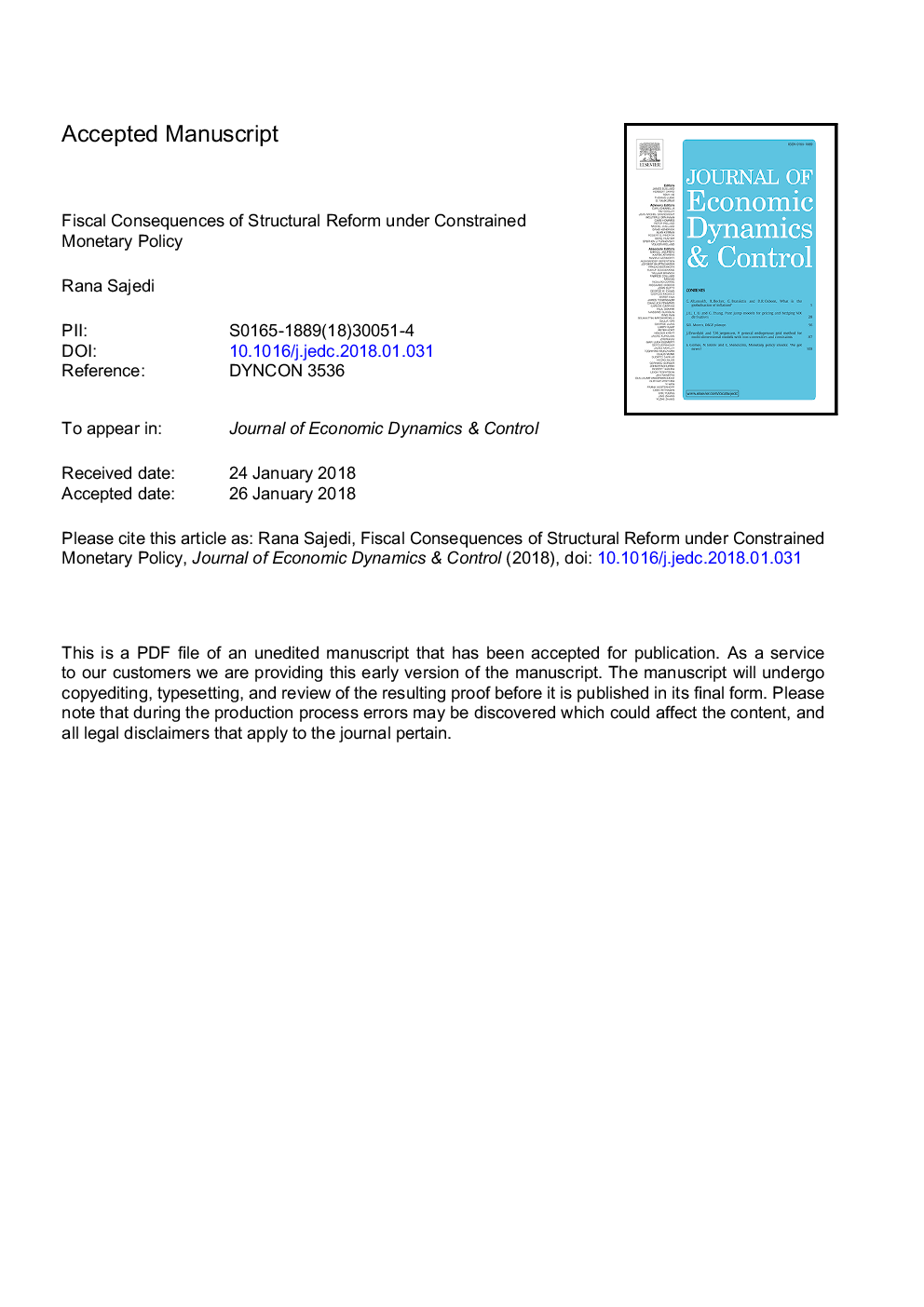| Article ID | Journal | Published Year | Pages | File Type |
|---|---|---|---|---|
| 7358418 | Journal of Economic Dynamics and Control | 2018 | 32 Pages |
Abstract
Structural reforms, in particular reductions in mark-ups in product and labour markets, can entail short run output costs unless offset by a demand expansion. When monetary policy is constrained and cannot carry out this short run expansion, there is a potential role for fiscal policy. Although this idea has received a lot of attention in the policy debate, there has been little formal study of the fiscal consequences of reforms under constrained monetary policy. This paper uses a model to quantify the short run fiscal costs and long run fiscal benefits of reforms, in order to see to what extent the latter justify the former. The fiscal costs and benefits of reforms are both generally found to be small, although larger reforms entail larger rises in deficit-to-GDP in the short run. Results suggest that reforms in labour markets have little effect on public finances in the long run, but their short run costs can be ameliorated if combined with product market reforms.
Related Topics
Physical Sciences and Engineering
Mathematics
Control and Optimization
Authors
Rana Sajedi,
